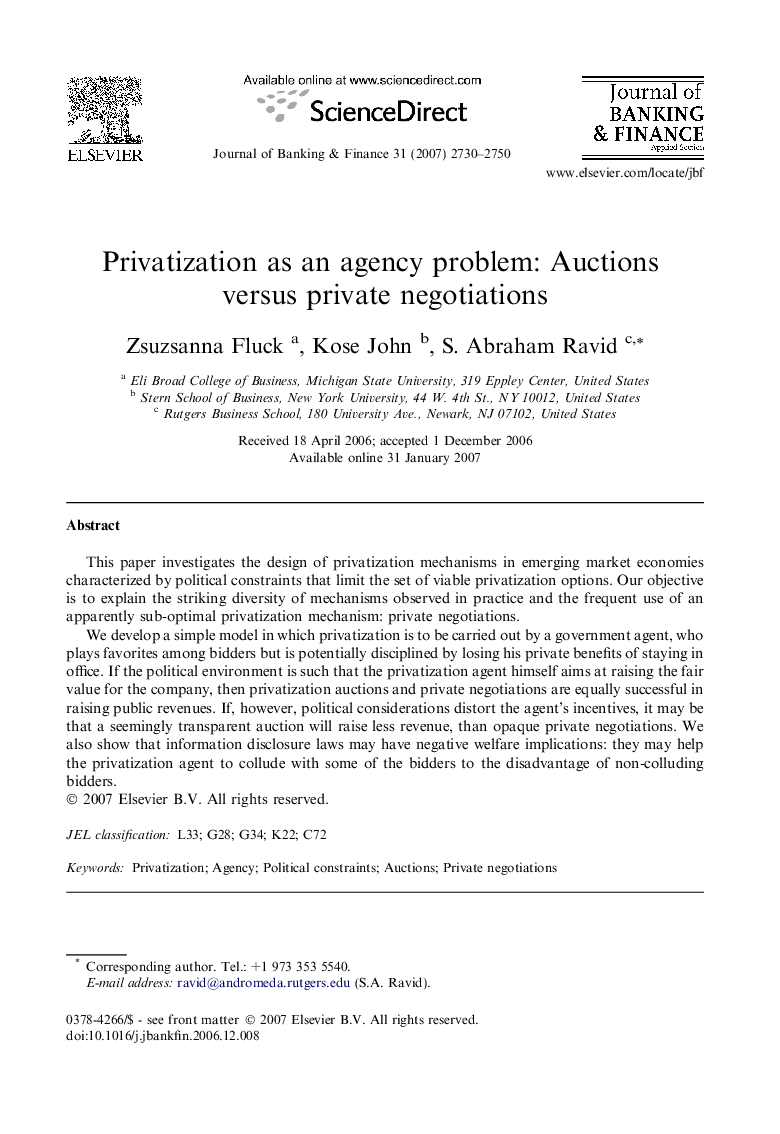| Article ID | Journal | Published Year | Pages | File Type |
|---|---|---|---|---|
| 5090899 | Journal of Banking & Finance | 2007 | 21 Pages |
Abstract
We develop a simple model in which privatization is to be carried out by a government agent, who plays favorites among bidders but is potentially disciplined by losing his private benefits of staying in office. If the political environment is such that the privatization agent himself aims at raising the fair value for the company, then privatization auctions and private negotiations are equally successful in raising public revenues. If, however, political considerations distort the agent's incentives, it may be that a seemingly transparent auction will raise less revenue, than opaque private negotiations. We also show that information disclosure laws may have negative welfare implications: they may help the privatization agent to collude with some of the bidders to the disadvantage of non-colluding bidders.
Related Topics
Social Sciences and Humanities
Economics, Econometrics and Finance
Economics and Econometrics
Authors
Zsuzsanna Fluck, Kose John, S. Abraham Ravid,
